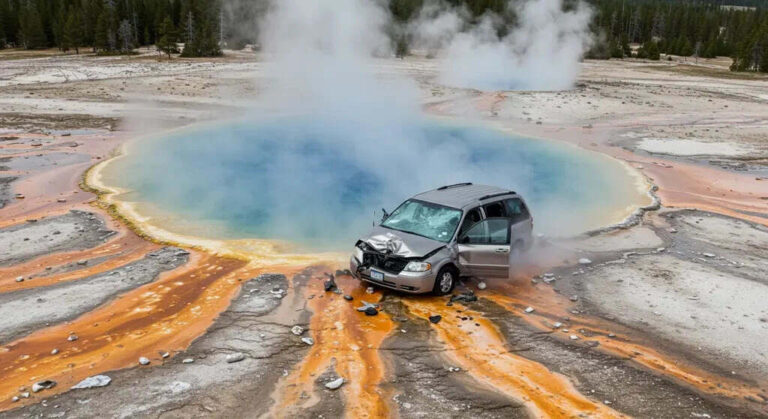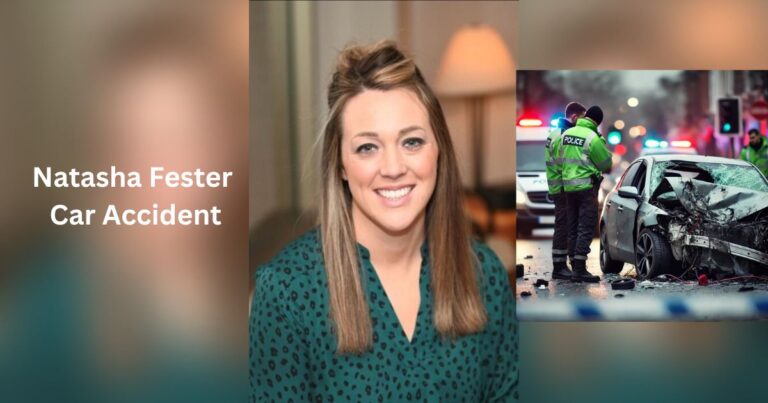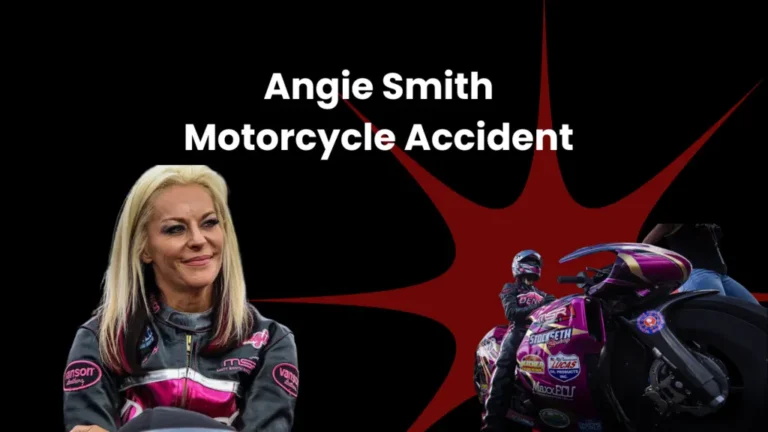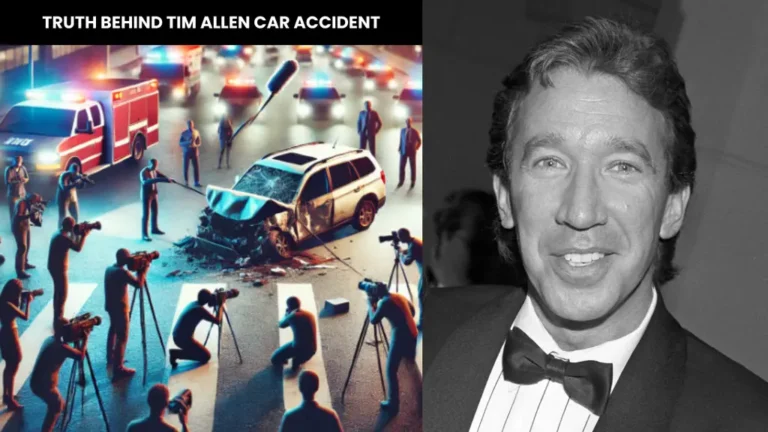Kylie Kelce Car Accident – A Comprehensive Breakdown of the Rumor and Its Impact
Kylie Kelce, wife of NFL star Jason Kelce, has been the subject of various rumors, including one particularly alarming story about a car accident that supposedly left her in critical condition. While these rumors gained traction across social media and some unverified online platforms, they have since been debunked as false. Despite this, the rumors have had a lasting impact, leaving many searching for the truth. This article aims to clarify the situation and explore the nature of viral misinformation, focusing on how these stories originated and spread, as well as how Jason and Kylie Kelce handled the situation.
The Origins of the Kylie Kelce Car Accident Rumor
The rumors about Kylie Kelce being involved in a serious car accident began circulating in mid-July 2024. The initial reports suggested that she was involved in a single-vehicle accident while driving on a rural road near Philadelphia. According to these stories, her car veered off the road and crashed into a tree, resulting in severe injuries.
Several platforms published these stories without verification, which led to a viral spread of the misinformation. Some versions of the rumor were even more extreme, falsely claiming that Kylie had tragically passed away as a result of the crash. As is often the case with unverified social media reports, the news gained significant traction before Jason or Kylie Kelce had a chance to respond publicly.
How Social Media Fueled the Spread of Misinformation
The viral nature of this rumor can be attributed to several factors:
- Influence of celebrity status: Jason Kelce, a well-known NFL player for the Philadelphia Eagles, is frequently in the public eye, which made the story more sensational and widely shared.
- Social media algorithms: Platforms like Facebook, Instagram, and Twitter tend to prioritize content that receives high engagement, even when it is false. As a result, many fans of Jason Kelce and the NFL unknowingly shared the baseless claims.
- The prevalence of clickbait websites: Numerous low-quality websites saw the potential for quick traffic and published the false information without verifying the sources, contributing to the spread.
Despite the severity of the claims, no credible news outlet confirmed the car accident, and the story remained confined to rumor-mongering websites and social media platforms.
Jason and Kylie Kelce’s Response to the Rumors
After the rumors gained significant attention, Jason Kelce took to social media to address the situation. He confirmed that his wife, Kylie Kelce, had not been involved in any accident and was in good health. Both Jason and Kylie expressed frustration with the misleading information, emphasizing the importance of verifying facts before spreading potentially harmful news.
This was a critical step in stopping the rumors, as many people tend to believe information directly from the source. Jason and Kylie’s quick response helped clarify the situation for concerned fans and reduced the further spread of misinformation.
The Role of the Media in Debunking the Rumor
While Jason and Kylie Kelce’s response helped quell the rumors, several reputable news organizations also stepped in to set the record straight. Websites that specialize in fact-checking, as well as some well-known media outlets, confirmed that the car accident never occurred. They highlighted the dangers of sharing unverified information online and urged readers to be cautious about the sources they rely on for news.
How Misinformation About Kylie Kelce Car Accident Became Viral

The Kylie Kelce car accident rumor serves as a prime example of how false information can quickly spread and cause confusion. Several factors contributed to the viral nature of the story, and understanding these can help people recognize similar situations in the future.
1. Viral Social Media Trends
Social media platforms often prioritize sensational stories, especially those that involve celebrities. The algorithms on these platforms are designed to promote content that generates engagement, which can lead to misinformation being shared more widely than legitimate news. In this case, the unverified rumors about Kylie Kelce were shared by thousands of users, many of whom believed the news without checking the facts.
2. Lack of Verification by Low-Quality Websites
Another key factor that fueled the spread of this false information was the proliferation of low-quality, clickbait websites. These websites often prioritize speed over accuracy, posting sensational headlines without checking the facts. In many cases, these stories are published solely to drive traffic to the website, with little regard for the truth. The Kylie Kelce car accident rumor was a prime example of this trend, with several websites publishing the story without any verification.
3. Confirmation Bias
Fans of the Kelce family, particularly those who follow Jason Kelce’s NFL career, were more likely to believe the story because of their emotional connection to the family. This is known as confirmation bias—people tend to believe information that aligns with their pre-existing beliefs or emotional connections. In this case, the idea of a tragic accident involving Kylie Kelce was emotionally compelling, which led many people to believe and share the false news.
The Impact of the Kylie Kelce Car Accident Rumor

While the rumor was eventually debunked, it still had a significant impact on those involved. Kylie Kelce, as well as her family and friends, had to deal with the emotional toll of being the subject of a false and harmful story. Furthermore, the rumor caused unnecessary concern among fans of Jason Kelce and the NFL community at large.
The Emotional Toll on the Kelce Family
For Kylie Kelce, being at the center of such a disturbing rumor was undoubtedly stressful. False information about personal tragedies can have a lasting emotional impact, even after the rumors are debunked. In this case, the rumor about a serious car accident likely caused significant anxiety for Kylie, Jason, and their loved ones. They were forced to publicly address the rumors in order to set the record straight, which may have added to their stress.
The Reaction from Fans
Fans of Jason and Kylie Kelce were understandably concerned when the rumors first began to circulate. Many took to social media to express their worry and send well-wishes to the Kelce family. However, after the rumor was debunked, fans also expressed frustration with the spread of false information. Many called for greater responsibility in reporting and sharing news, particularly on social media platforms.
How to Spot and Avoid False Information
The Kylie Kelce car accident rumor is just one example of the many false stories that circulate online every day. In order to avoid falling victim to these types of rumors, it’s important to know how to spot false information and verify the news before sharing it.
1. Check the Source
One of the easiest ways to verify whether a story is true is to check the source. Is the story being reported by a reputable news organization, or is it only appearing on low-quality, clickbait websites? If you can’t find the story on any trustworthy news sites, it’s likely false.
2. Look for Official Statements
In the case of the Kylie Kelce car accident rumor, the story was debunked when Jason Kelce and his wife issued an official statement. If a rumor involves a well-known public figure, it’s always a good idea to check whether they’ve made any official statements about the situation.
3. Be Skeptical of Sensational Headlines
Many false stories are designed to grab attention with sensational, emotionally charged headlines. While it’s natural to feel a sense of urgency when reading these headlines, it’s important to take a step back and verify the information before sharing it.
4. Use Fact-Checking Websites
If you’re unsure whether a story is true, you can always check fact-checking websites such as Snopes or PolitiFact. These sites specialize in verifying the accuracy of news stories and can help you determine whether a rumor is true or false.
Conclusion
The Kylie Kelce car accident rumor serves as a reminder of the importance of verifying information before sharing it online. While the rumor was quickly debunked, it caused unnecessary stress and concern for both the Kelce family and their fans. By taking a more careful approach to news consumption and being skeptical of sensational headlines, we can help prevent the spread of false information in the future.
Frequently Asked Questions (FAQs)
1. Was Kylie Kelce involved in a car accident?
No, Kylie Kelce was not involved in any car accident. The rumors that circulated in July 2024 were entirely false and have since been debunked.
2. Where did the rumor about Kylie Kelce’s car accident come from?
The rumor originated from unverified online sources and social media platforms. Several low-quality websites published the story without any verification, which contributed to its spread.
3. How did Jason and Kylie Kelce respond to the rumors?
Jason Kelce addressed the rumors on social media, confirming that his wife was not involved in any accident and was in good health. This helped to debunk the false story.
4. Why do rumors like this spread so quickly?
Rumors about celebrities often spread quickly due to a combination of social media algorithms, emotional engagement from fans, and the lack of fact-checking by certain websites.
5. What can I do to avoid sharing false information?
Before sharing any news story, take the time to verify the information by checking the source, looking for official statements, and using fact-checking websites.






